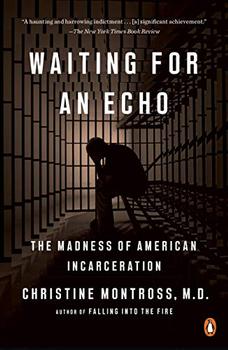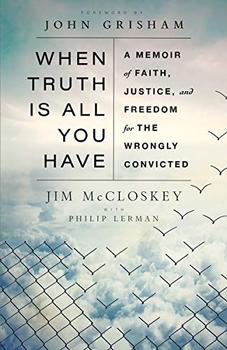Summary | Excerpt | Reviews | Beyond the book | Read-Alikes | Genres & Themes | Author Bio

How One Man Found Light in the Darkest Place
by David SheffSlipping into the back of the UCLA classroom, teenaged Jarvis Jay Masters was an imposter. An oddity in this space, a runaway from juvenile lockup between foster home placements, Masters took a seat. This was one of several visits he made to the school while taking drives in stolen cars. Eventually, it dawned on him that he was dreaming. He wasn't like the college students. He felt stupid for thinking he was. Two years later, Masters would be a convicted felon, another black man in prison. The boy who once sat in that university classroom would become, before the age of 27, a death row resident. While waiting for an execution date, a pardon or a new trial, he would also become a dedicated Buddhist practitioner.
The Buddhist on Death Row: How One Man Found Light in the Darkest Place by David Sheff, which tells Masters' story, is a tale of survivorship and divinity, of hope and consequence. A Henrik Ibsen quote on the first page reflects what is to come: "Cage an eagle and it will bite at the wires, be they of iron or of gold." Sheff writes of how Masters freed himself from captivity with spiritual shears rather than physical aggression.
The author offers us a sympathetic portrayal of a young man who was angry, depressed and frightened of dying in jail. While serving a sentence for armed robbery, Masters was warped by the immoral culture of California's San Quentin State Prison. By the time he was framed for a guard's murder, the habit of conforming and trying to survive in an environment filled with dangerous men was too deeply ingrained. Unwilling to snitch on the Black Guerilla Family, an infamous prison gang, Masters took the fall and ended up on death row.
He was given a lifeline when Melody Ermachild, a criminal investigator working with his legal team, encouraged him to meditate. At first, he was dismayed: "In this place? They're trying to kill me and you want me to meditate?" She walked him through the basics. To his surprise, meditation calmed him, removed all his grievances. But as soon as he was feeling peaceful, a familiar panic set in. Childhood trauma he had repressed returned in an exaggerated form. His brain was so dependent upon chaotic excess that he lacked the capacity to simply let it all go. But Melody had prepared him: "When your mind wanders, return to your body, what you sense outside and inside you. And breathe."
Carefully mining Masters' pilgrimage through Buddhism, Sheff effectively reveals the religion as a tranquil partner to the incarcerated man in his struggles through legal and personal challenges: trying to prove his innocence, reconciling his violent past. Page after page, chapter after chapter, the reader is asked to reconsider, not prison, but the prisoner. To reconsider his soul. His divinity. His selflessness. When Masters took the vows of Buddhism in a ceremony performed at San Quentin (a beautifully written accounting) he was redeemed, but not as a saint. He was a new man with a painful past that no longer wounded him in nighttime fits and screams. His anger and depression receded into the margins of his old life, not buried, but distant. As a Buddhist, Masters became a font of peace.
A Buddhist on Death Row is a prison story notably absent of blame, victimization and absolution. Perhaps that is why Masters' humanity feels heroic, particularly when he extends himself to those who are non-believers. He is self-aware and honest as he lives by embracing suffering, by exhibiting humility and compassion. But there is a lingering weight to his story, even with his enlightenment, a reminder that maltreated children can become emotionally damaged adults.
![]() This review was originally published in The BookBrowse Review in September 2020, and has been updated for the
July 2021 edition.
Click here to go to this issue.
This review was originally published in The BookBrowse Review in September 2020, and has been updated for the
July 2021 edition.
Click here to go to this issue.

If you liked The Buddhist on Death Row, try these:

by Christine Montross
Published 2021
Galvanized by her work in our nation's jails, psychiatrist Christine Montross illuminates the human cost of mass incarceration and mental illness

by Jim McCloskey, Philip Lerman
Published 2021
By the founder of the first organization in the United States committed to freeing the wrongly imprisoned, a riveting story of devotion, sacrifice, and vindication.
Your guide toexceptional books
BookBrowse seeks out and recommends the best in contemporary fiction and nonfiction—books that not only engage and entertain but also deepen our understanding of ourselves and the world around us.